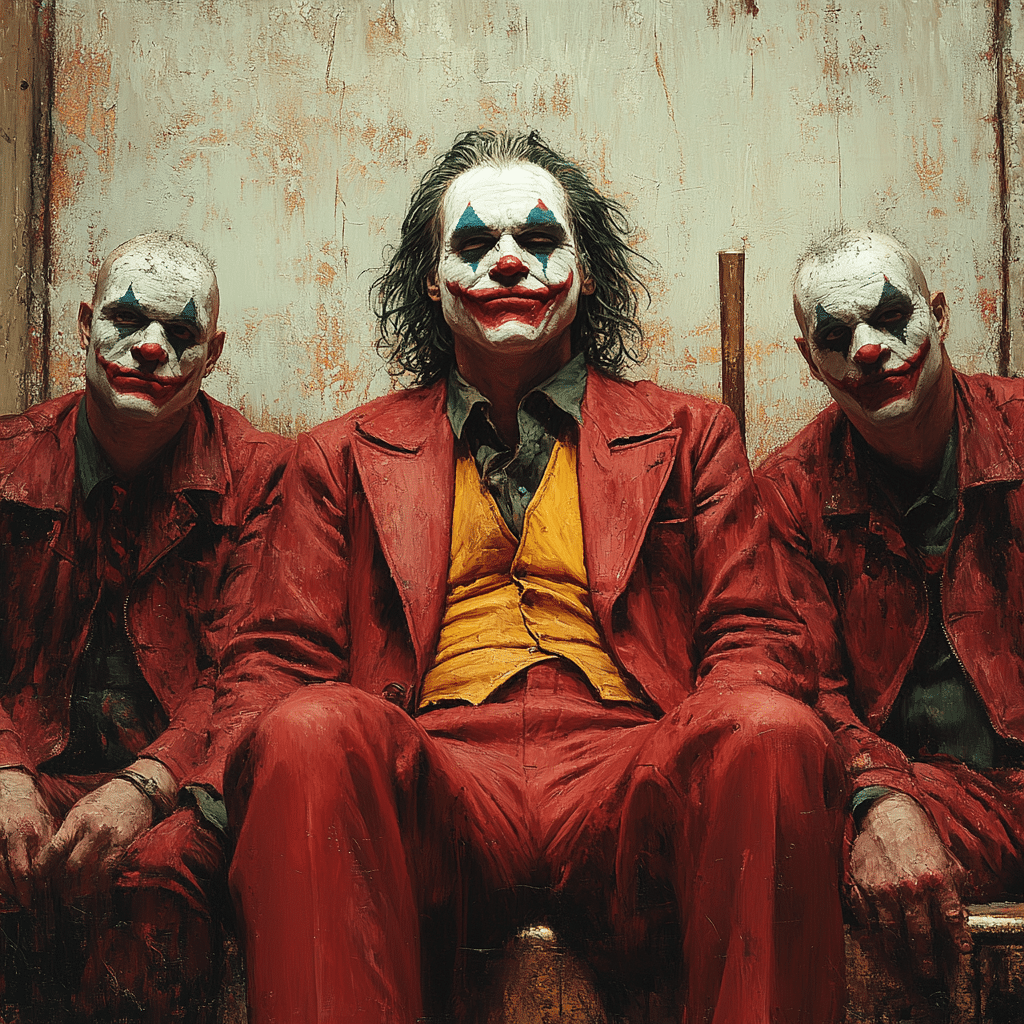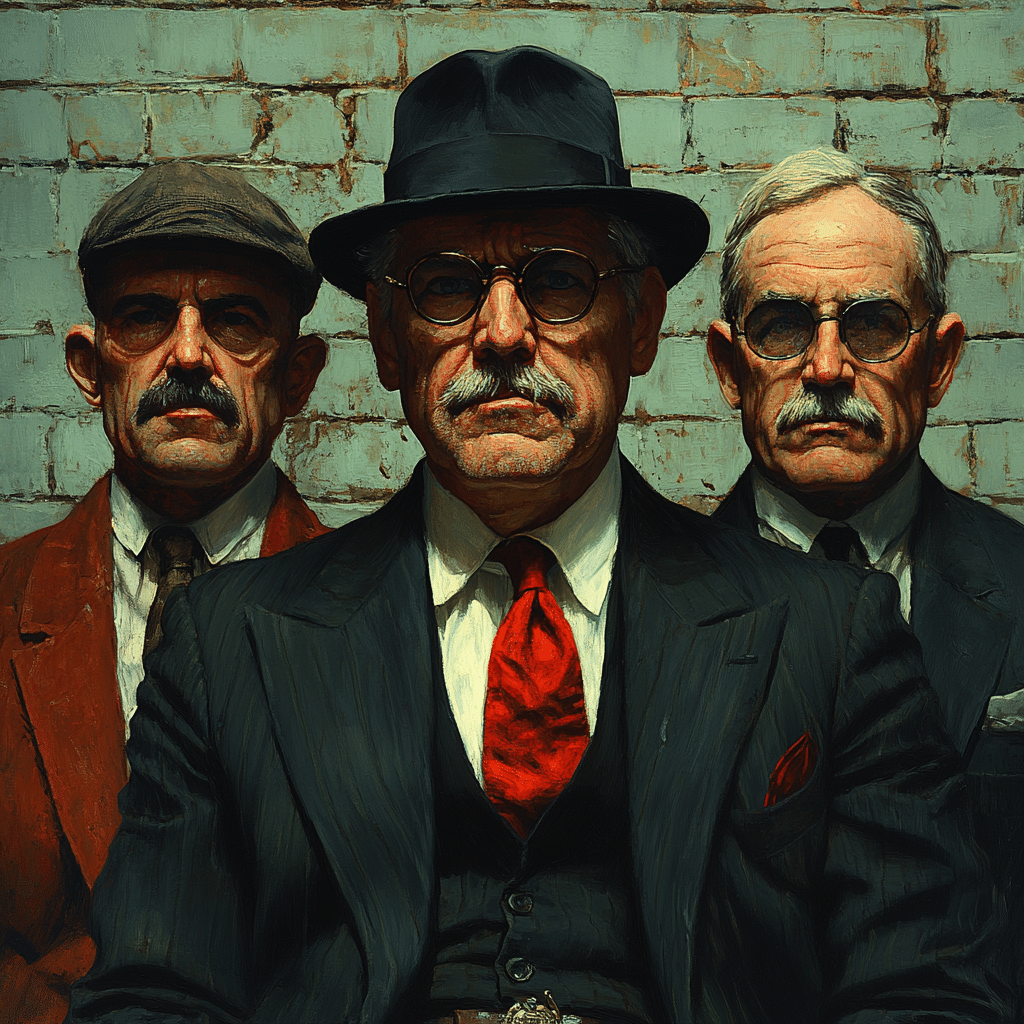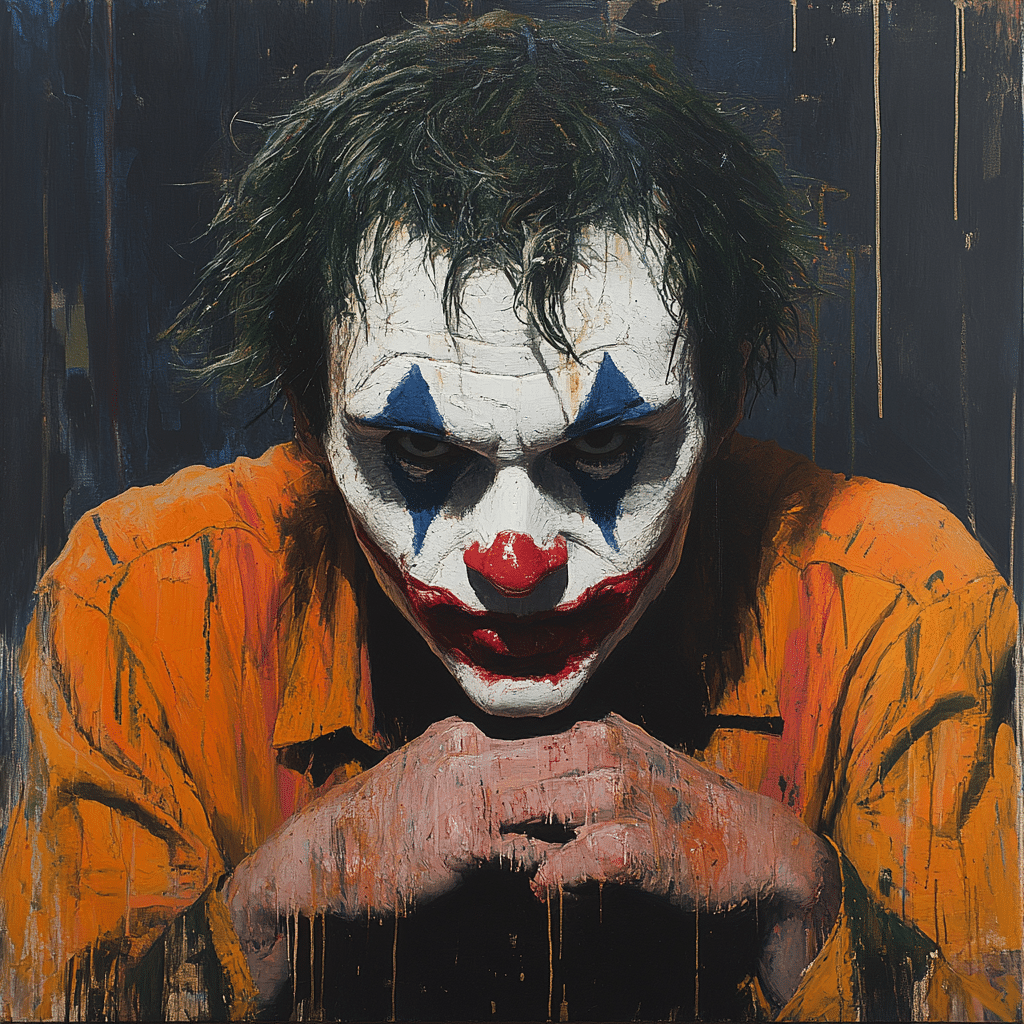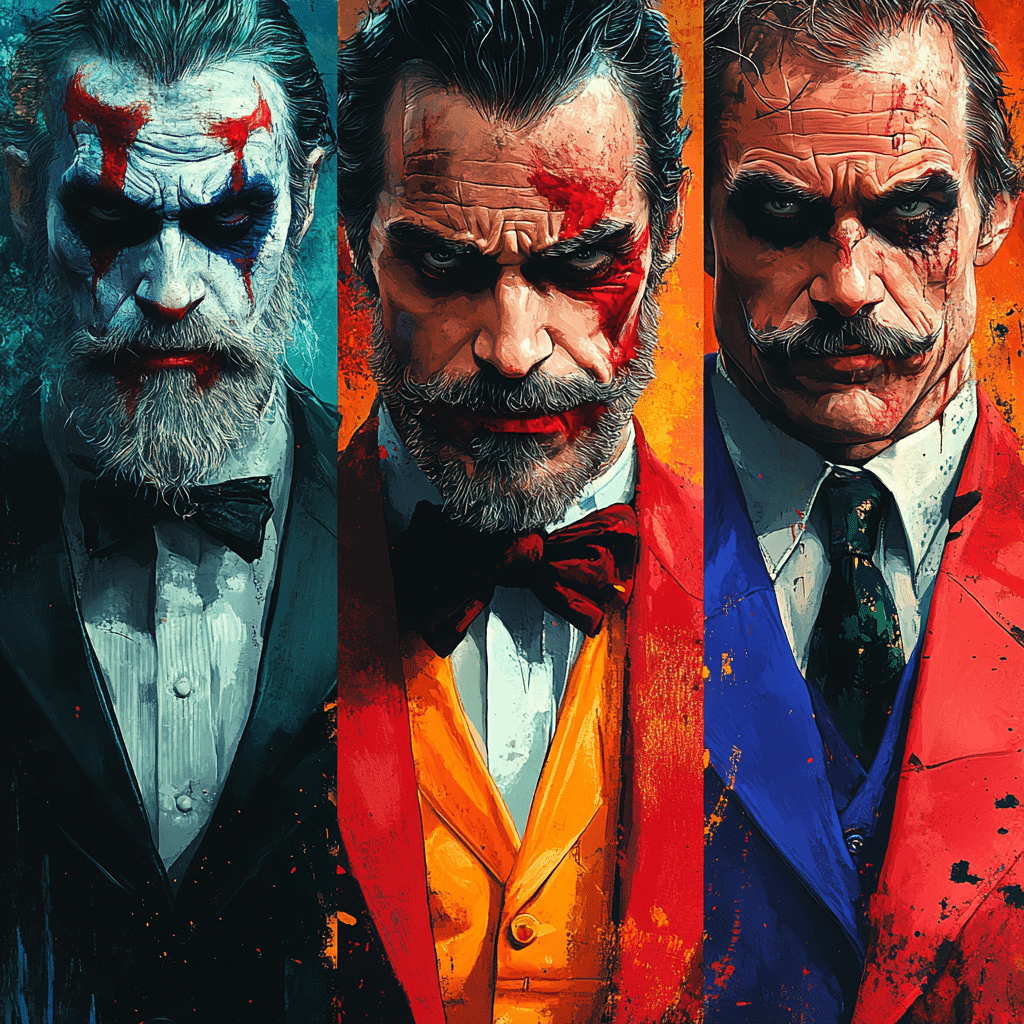The morbid allure surrounding famous serial killers has gripped society for decades. Even in a nation built on freedom and the pursuit of happiness, these notorious figures instill a primal fear that transcends mere horror. Their lives and heinous deeds spark intense discussions and pose vital questions about morality, justice, and the wild, unregulated aspects of human nature — especially in today’s climate, where the ‘Woke’ movement often challenges traditional values. Let’s delve into the chilling stories of seven psychopaths who shaped the criminal landscape, reminding us why vigilance and caution are paramount in everyday life.
Seven Psychopaths Who Shaped the Criminal Landscape
Serial killers reflect the dark underbelly of our society. As ominous figures often hiding in plain sight, they unveil an unsettling truth about humanity’s capacity for evil and deception. Here, we’ve compiled a list of seven famous serial killers, each leaving an indelible mark on America’s criminal history.

1. Ted Bundy: The Charismatic Monster
Ted Bundy is perhaps the poster child for famous serial killers. His striking looks and engaging personality allowed him to win over young women effortlessly. In the 1970s, Bundy became a household name for all the wrong reasons, luring his victims with charm before committing his monstrous acts. His ability to lead a double life emphasizes a disturbing reality: evil can often wear a friendly mask.
2. Jeffrey Dahmer: The Cannibalistic Predator
When discussing famous serial killers, it’s impossible to ignore Jeffrey Dahmer, known infamously as the “Milwaukee Cannibal.” Dahmer went beyond murder, engaging in terrifying acts like necrophilia and cannibalism, shocking America in the late 20th century. His careful manipulation of victim trust reveals a predatory instinct mixed with chilling audacity, challenging us to confront uncomfortable truths about human depravity.
3. John Wayne Gacy: The Clown Prince of Death
Also in the conversation of famous serial killers is John Wayne Gacy, the “Pogo the Clown” of the Chgo area. Gacy’s twisted life showcases stark duality; he charmed children and families by day but transformed into a sadistic murderer at night. Claiming at least 33 victims, his crimes hint at a fundamental moral failing within society that can empower abusers to thrive unchecked.
4. Aileen Wuornos: The Female Avenger
Aileen Wuornos stands out among famous serial killers, embodying a narrative often overlooked in discussions of violent crime. Though her actions were appalling, her backstory is one of extreme abuse and neglect. Wuornos argued that her victims attempted to assault her, framing her murders as acts of self-defense. This twist complicates the typical depiction of female criminals, also igniting conversations about gender roles and societal expectations.
5. Ed Gein: The Butcher of Plainfield
Entering the conversation of famous serial killers is Ed Gein, whose crimes would go on to inspire fictional monsters like Norman Bates and Leatherface. While Gein’s murder count is relatively low, the grotesque nature of his acts—exhuming corpses and crafting trophies—reflects a haunting psyche. Gein’s legacy reveals not just the horror of his acts but also how genuinely terrifying minds can inspire creative works that shape artistic expression in profound ways.
6. Gary Ridgway: The Green River Killer
Gary Ridgway holds the grim title of America’s most prolific serial killer, confessing to over 70 murders in the Pacific Northwest during the ’80s and ’90s. As the “Green River Killer,” his meticulous methods and lack of remorse symbolize the deepest depths of human depravity. His long evasion of law enforcement points to significant systemic failures, exposing society’s often casual neglect of marginalized communities.
7. BTK Killer: The Builder of Torment
Dennis Rader, known as the BTK Killer (Bind, Torture, Kill), instilled fear in the community of Wichita, Kansas, for over three decades. Rader’s chilling letters to authorities not only taunted law enforcement but also revealed a man with a hunger for notoriety. His methodical style showcases how some can derive pleasure from control and fear, emphasizing a compelling truth about human nature.

Reflections on Crooks and Liars in the Shadows of Society
The chilling stories of these seven infamous psychopaths remind us how easily charm can mask predatory instincts. They teach us that many crooks and liars lurk in shadows we often fail to illuminate. As we reflect upon their legacies, we must acknowledge both the horror they inflicted and the lessons we still need to learn about vigilance and accountability.
In grasping the dark tales of these famous serial killers, we delve into complex discussions about morality, safety, and the often murky waters of societal expectations. They challenge us to remain aware and courageous defenders of everlasting traditional values and beliefs. We must stay vigilant against those who would exploit us, ensuring that the memory of their horrific deeds fuels our resolve to protect the innocent and uphold justice.
Famous Serial Killers: Masters of Horror and Fear
The Infamous Creators of Dread
When discussing famous serial killers, one can’t help but notice the chilling allure that surrounds these notorious figures. For instance, did you know that Ted Bundy was a psychology major? His understanding of human behavior helped him craft an image that drew victims in. In contrast, his actions left a trail of horror. This paradox makes it interesting how some people can lead double lives—just like the devious maids cast, who’ve amazed audiences with their skillful portrayals of seemingly ordinary people harboring dark secrets.
In 1978, Bundy’s reign of terror came to a halt when he was apprehended in Utah. Interestingly, his charismatic demeanor made him quite a spectacle while in court, and he even represented himself at one point! It’s a bit like those classic horror flicks where the charming villain gradually reveals their true self. Speaking of true personalities, many might ask who wrote the bible, as the text explores the duality of good and evil, much like Bundy’s complex character.
The Psychology Behind Their Actions
What drives these famous serial killers? Experts often point to a combination of nature and nurture, showing how early childhood experiences can lead to such drastic behaviors. John Wayne Gacy, known as the “Killer Clown,” had a tough upbringing, which is all too common in the backgrounds of many infamous murderers. Gacy’s facade of joviality masked the horror he was capable of, drawing a parallel to pop culture figures like nerds in movies who may look harmless but hide unexpected powers.
On the other hand, there are killers that seem almost cinematic in their approach, like Jeffrey Dahmer, who fell into the cultural phenomenon of true crime fascination. People can’t help but compare the strategies of these notorious figures with those seen in entertainment. This is reminiscent of sports fans tuning in for the latest niner game—there’s another layer of intrigue when you’ve got something fearsome to root for.
The Legacy of Infamy
Even decades later, the stories of these famous serial killers continue to captivate our imagination. There are countless documentaries and films that bring their twisted tales back to life, often painting them as genius masterminds. But, let’s not forget that these narratives sometimes gloss over the victims, whose stories deserve our attention too. For example, many fans of anime may draw parallels to characters like Itachi, who also wrestled with the complexities of good and evil.
Interestingly, societal reactions to these figures can be likened to people placing bets on outcomes—similar to how you’d check out bet us for the latest odds on a major event or the Kentucky Derby results for a thrilling update. The discussions around famous serial killers serve not merely as entertainment, but as cautionary tales that remind us of the darkest corners of humanity. It gets one to wonder—could these killers ever be stopped? Perhaps the answer toggles like a light switch, revealing insights into when did Biden drop out of the race or contemplating deeper psychological questions that echo in the alleys of history.






































